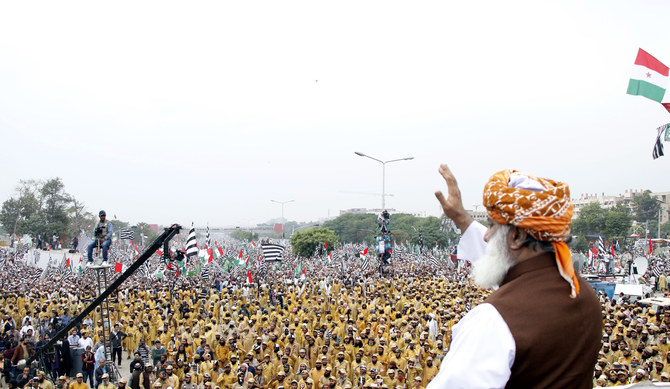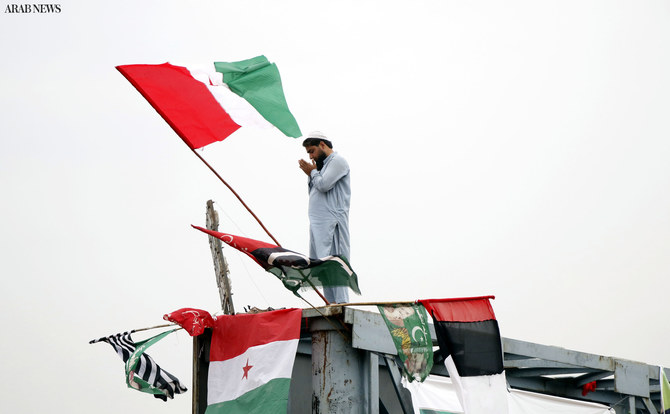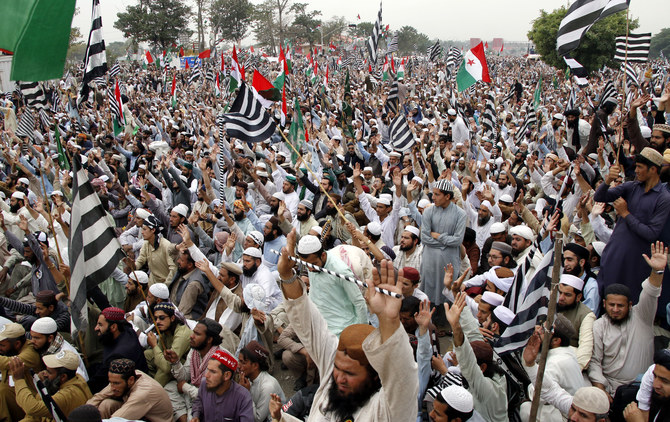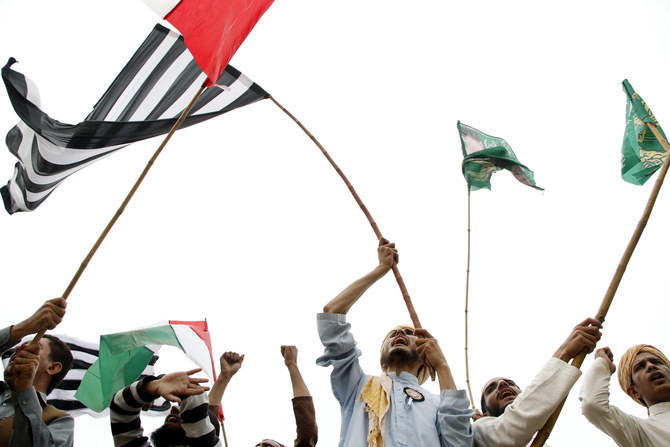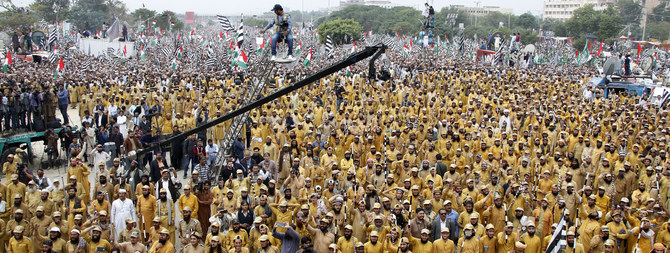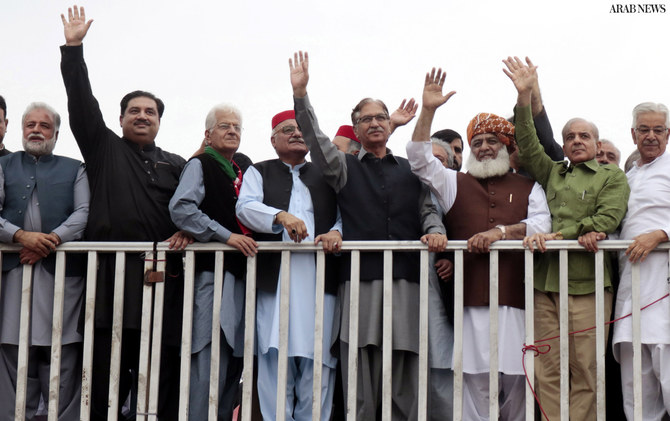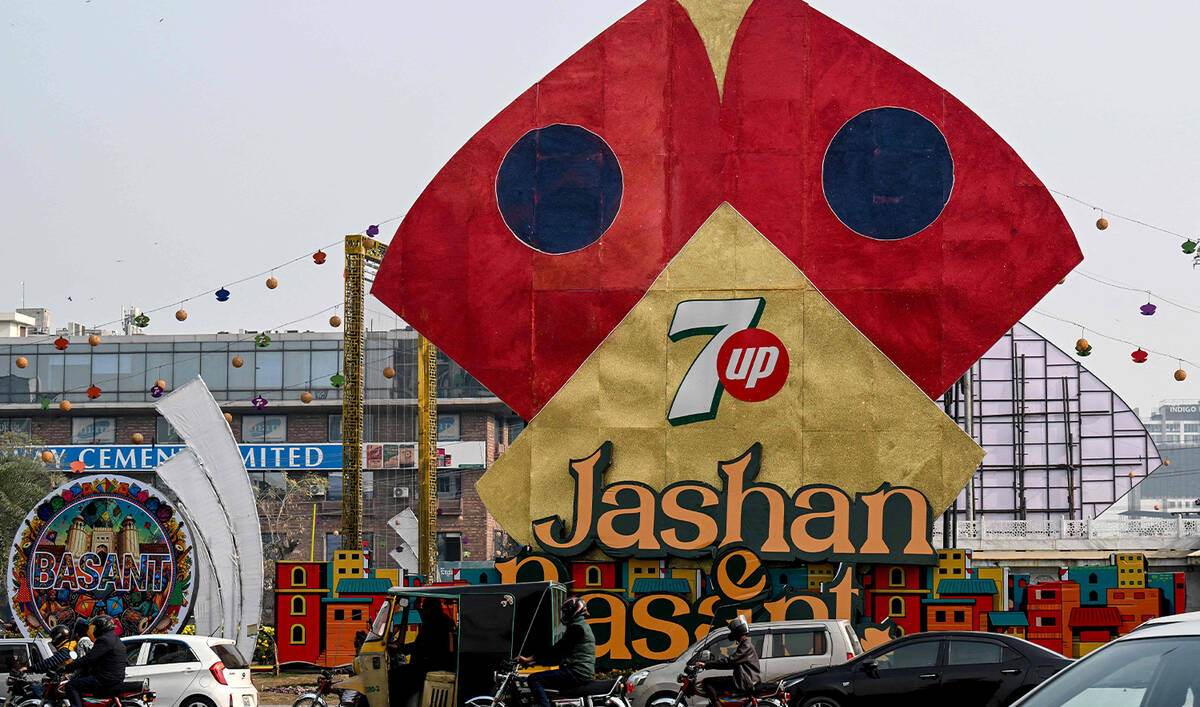ISLAMABAD: The leader of one of Pakistan’s largest religious parties, Fazl-ur-Rehman, on Thursday gave Prime Minister Imran Khan two days to resign or else thousands of protesters gathered in Islamabad would decide on the future course of action.
Rehman is leading tens of thousands of opposition supporters to demand the ouster of what they say is an illegitimate government, warning of chaos if their demands were not met.
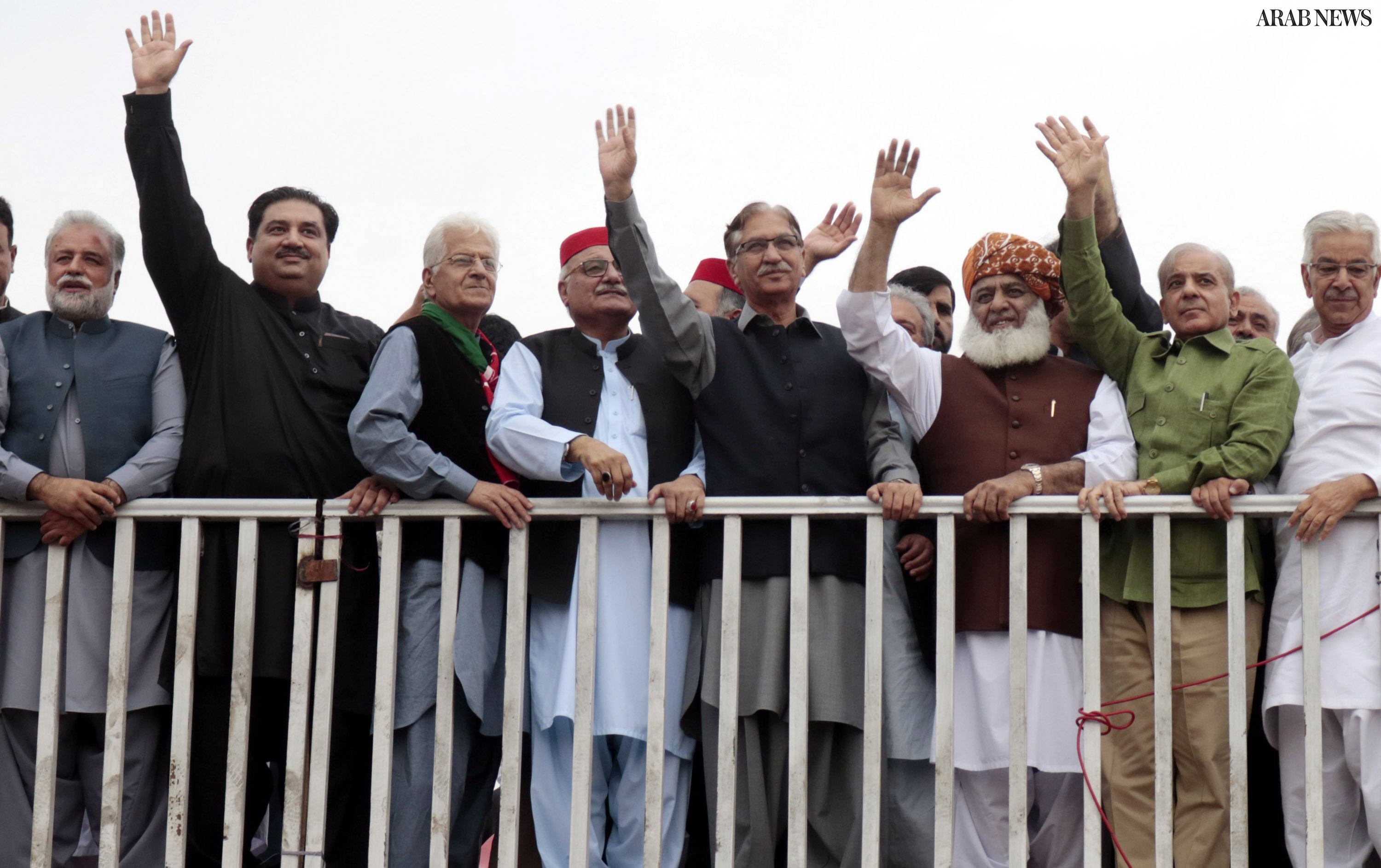
Leaders of opposition parties wave at protesters during the ongoing Azadi March in Islamabad on Nov. 1, 2019. (AN photo)
“You have two days time. You should tender your resignation. Otherwise the next day, we have to decide our future course of action,” the firebrand scholar said in an address to protesters on Thursday evening.
Khan has dismissed the opposition’s calls to step down and warned he will not tolerate chaos on the streets.
“We are peaceful people, that’s why we want that we stay within the ambit of peace,” Rehman told protesters, flanked by the leaders of major opposition parties. “Otherwise this sea of Pakistan’s public that has arrived in Islamabad has the power to go inside the prime minister’s house and themselves arrest the prime minister.”
Rehman said protesters did not want a confrontation with “institutions.”
“We want to see institutions powerful but we also want institutions to act with neutrality,” he said.

Scores of protesters took to the streets of Islamabad on Nov. 1, 2019, as part of the ongoing Azadi March led by Maulana Fazlur Rehman, chief of the Jamiat Ulema-e-Islam (JUI-F), seeking to topple Prime Minister Imran Khan's government. (AN photo)
However, he warned: “If we feel that this illegitimate ruler of ours [Imran Khan] is being protected by our institutions, then there is a deadline of two days. After that we should not be stopped from having an opinion about these institutions.”
Speaking at the protest rally, opposition leader Shehbaz Sharif, who is the president of the PMLN party of jailed ex-PM Nawaz Sharif, said Khan’s government had failed to deliver in the year since it had come to power, as was visible from protests by all segments of the society including traders, doctors and engineers.
“We have to move this movement forward ... and if given just six months, we will put this country back on track,” he said.
Bilawal Bhutto Zardari, the chairman of the opposition PPP party, said the government had burdened the poor through double-digit inflation and the country was plagued by increasing unemployment.
“I want to assure you on behalf of my party that we will stand by you in every democratic step you take,” he told the protesters. “Together we will send this puppet, selected PM, home.”
Security is tight in Islamabad with the government and diplomatic sector — just a few miles from the rally site — sealed off and roads blocked by barriers of shipping containers.
Media reported that schools were closed, public transport suspended and Internet services interrupted in some areas.
Khan won the 2018 election on promises of pulling 100 million people out of poverty. But an economy in crisis has forced his government, like many of its predecessors, to turn to the International Monetary Fund for a $6 billion bailout.
The government is trying to correct an unsustainable current account deficit and cut debt while trying to expand the tax base in the country of 208 million people, in which only 1% of people file returns. Inflation is squeezing household budgets and traders this week protested against new tax measures.



